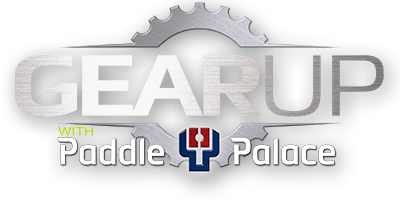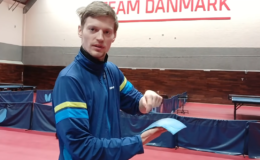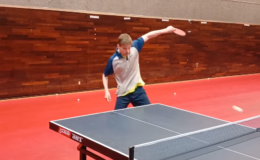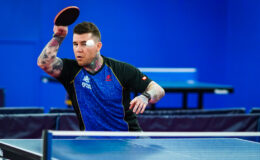By Larry Hodges, USATT Hall of Famer and National Coach
Okay, let’s be up front about this – the game is not all mental. Or is it? At least indirectly, everything comes from the mental side. Even physical training cannot be effective unless you push yourself – and that’s mental. Even more specifically, as a member of the USA Mini-Cadet Team recently reminded me, once you are out at the table playing a match, the game is all mental.
To quote Derek Nie (age 11, rated 2146), “You can’t improve your skills at a tournament. So at tournaments, the game is all mental.” I was his coach at the Eastern Opens a few weeks ago when he said this. He is a wise fifth grader.
In the middle of a big match, you are not going to get stronger, faster, or improve your stamina. You are not going to suddenly learn how to loop if you couldn’t do so before. You won’t suddenly learn techniques you didn’t have before. What you have is what you brought into the match, and how you use them. The former you no longer have control over; the latter you have complete control, if you know how to do so. And it’s all mental.
The mental game generally breaks down into two aspects: sports psychology and tactical skills. Sports psychology is your ability to play your best despite the pressure of a match. Tactical skills are your ability to figure out how best to use what weapons you have – and much of that comes from clear thinking that comes from sports psychology. Together, they should be your primary focus in a match. If you are able to play with relative calm and focus, and are able to think clearly and figure out how best to use your various techniques to win, you have a strong mental game. And that is why the game is all mental.



